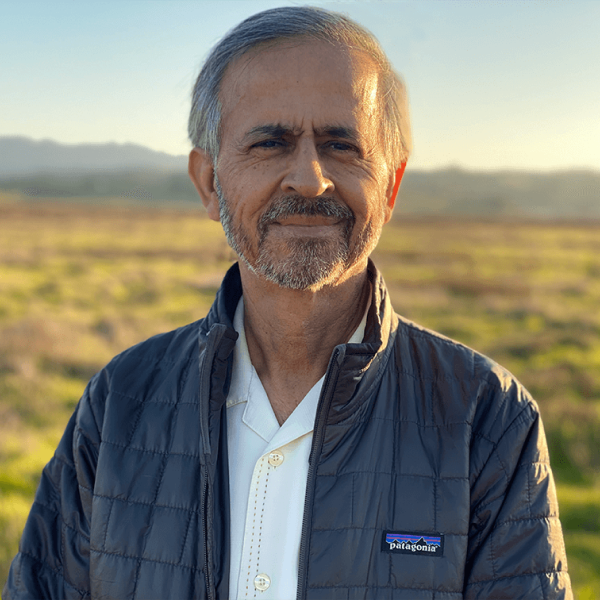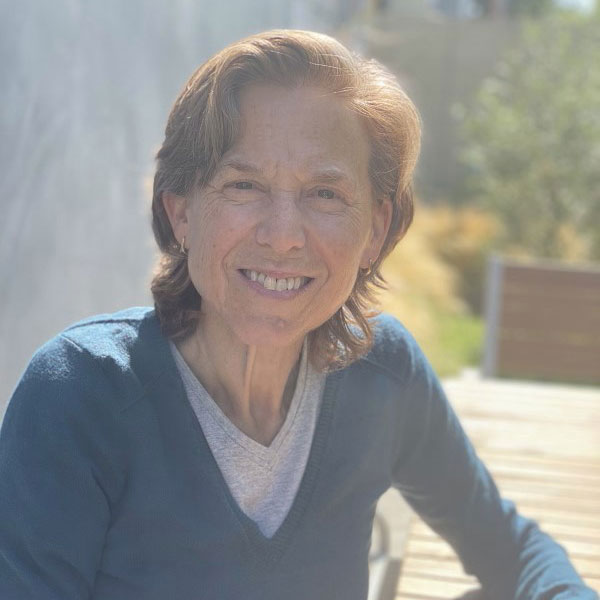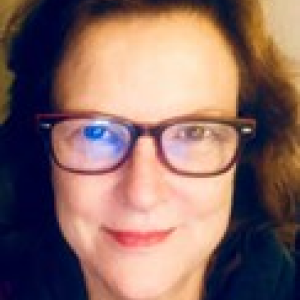January 13th - February 10th
Course Faculty:
Aftab Omer, Melissa Schwartz, and Meggan Hartman

The Context of Contemporary Coaching
Over the last 50 years, coaching as a practice for enhancing skills and capacities has grown in accelerating ways. This steep global rise of coaching can be understood as a response to the cultural crises and complexity challenges that permeate workplace teams, communities, and societies. Coaching practitioners serve in many professional domains including health, management, academics, sports, and overall personal and professional well-being. Coaching is now the globally dominant practitioner frame that is focused on enhancing individual and collective development.
A plethora of approaches to coaching have made for an eclectic marketplace lacking in sufficient structures of quality assurance. Most approaches come with their own specific concepts, principles, and practices that are aligned with very distinct outcomes. However, a versatile yet coherent approach to coaching optimally draws on many approaches, enabling integrated perspectives and practices instead of merely and sporadically choosing from an eclectic assortment.
What is Imaginal Coaching?
Coaching may be understood as a postmodern expression of transformative learning. Drawing on neuroscience, mindfulness, embodiment, and the creative arts, Imaginal Coaching is sourced in over 30 years of innovation in the theory and practice of transformative learning at Meridian University. Imaginal Coaching integrates somatic, dialogic, depth, and transpersonal dimensions of human experience. An imaginal approach to coaching activates the transformative potentials of conversation sourced in the imagination while engaging the whole person, via practices of expressive embodiment and creative action.
Imaginal coaching is a distinct approach that engages the imagination as a primary instrument for catalyzing transformative change. This recognizes that sustainable growth and change occur through the cultivation of imaginal capacities allowing for new possibilities to emerge from the liminal spaces between current reality and future potential. This approach enables coaching to engage the whole person while being finely attuned to the cultural context of the person's life-world. In Imaginal Coaching, conversational dialogue empowers well-being and creative action, serving personal and professional development.
The course explores how coaches can develop imaginal perception to discern the archetypal patterns, metaphoric structures, and nascent possibilities alive within client systems. By following the movement of images, both literal and metaphorical as they arise in coaching conversations, these are understood not as mere symbols to be interpreted but as living presences that mediate between conscious intention and previously unaware wisdom.
Course Modules
- Engaging the Other
- The Magical Other
- Belonging to Each Other
- Responding to Each Other
- Coaching as Transformative Learning
- Neuroplasticity and Brain Development
- The Gating of Experience: The Brian’s Default Mode Network
- Navigating Connection: The Foundations of Safety
- Turbulence and Flow: The Vicissitudes of Motivation and Emotion
- Designed to Learn: The Brain’s Cognitive Powers
- The Brain's Negative Emotional Bias
- Mindfulness and Contemplation
- Imagination and Activation of Trance States
- Psychoactive substances and altered states of consciousness
- The Triumph of Sophistry: When Mind Turns Towards Self Deception
- Models of Structural Development
- Curiosity Drives Development
- Knowing, Thinking, and Enaction
- Empathy and Resonance: It Takes Others to Become a Person
- Modeling Personality Patterns: The Enneagram and MBTI
- The Other Within: Engaging in Parts-Work like IFS plus Other Approaches to Multiplicity
- Shadows of Identity: Conflict and Scapegoating
- Freedom of Identity and Freedom from Identity
- Recognition: From Subject to Object
- Beyond Resilience, to Anti-Fragile
- Compassionate Accountability
- Dialogic Communication
- Attunement and Relationality
- The Catastrophic Risks of Chronic Liminality
- Social Imaginary and the Transindividual
- Culture as Developmental Space
*Course modules are illustrative. Faculty build dynamic course content and class structure aligned with and beyond the listed modules.
Convening Faculty

Aftab Omer
Aftab Omer, PhD is the president of Meridian University which offers degree and professional programs globally, emphasizing the power of transformative learning.
He is a sociologist, psychologist, developmentalist, and futurist. Raised in Pakistan, India, Hawaii, and Turkey, he was educated at the universities of M.I.T, Harvard and Brandeis. His publications have addressed the topics of transformative learning, dialogic capability, developmental power, cultural leadership, civil society, generative entrepreneurship, and the power of imagination.
Aftab’s advising work focuses on team development and on leveraging the creative potentials of conflict, diversity, and complexity. Formerly the president of the Council for Humanistic and Transpersonal Psychologies, he is a Fellow of the International Futures Forum and the World Academy of Arts and Sciences.

Melissa Schwartz
Melissa Schwartz, PhD is the Chief Academic Officer at Meridian University where she guides integrally-oriented programs in Education, Business, and Psychology. The Director of Meridian’s Center for Transformative Learning, Melissa is dually licensed as both a psychologist and as a Marriage and Family Therapist (MFT). She serves as a reviewer for the American Psychological Association’s Journal, Psychology of Women Quarterly, and the California Psychological Association’s Office of Professional Development. As well, she serves as a Subject Matter Expert for California’s Board of Behavioral Sciences in the continual development of the state’s MFT licensure examination. Melissa’s research interests are in the areas of adult development, the psychology of women, integral transformative assessment, and the role of culture in transformative learning.

Meggan Hartman
Meggan Hartman, PhD, is a psychologist, educator, and Purpose Guide with a focus on transformative education. As a core faculty member at Meridian University, she serves as the Director of Assessment and Student Development. In her developmental coaching work, she helps individuals discover and actualize their life's purpose. Prior to her career in higher education, Meggan was a teacher and leader in outdoor education, including her time with Outward Bound. Her research interests encompass psychology, ecology, sociology, spirituality, and the impact of culture on mothering identity. Meggan is dedicated to fostering supportive communities and integrating transformative experiences with nature, learning, and reflection in her work. Currently, she resides in Western North Carolina with her family, nurturing a close connection to the natural environment.
Contributing Faculty

Aftab Omer
Aftab Omer, PhD is the president of Meridian University which offers degree and professional programs globally, emphasizing the power of transformative learning.
He is a sociologist, psychologist, developmentalist, and futurist. Raised in Pakistan, India, Hawaii, and Turkey, he was educated at the universities of M.I.T, Harvard and Brandeis. His publications have addressed the topics of transformative learning, dialogic capability, developmental power, cultural leadership, civil society, generative entrepreneurship, and the power of imagination.
Aftab’s advising work focuses on team development and on leveraging the creative potentials of conflict, diversity, and complexity. Formerly the president of the Council for Humanistic and Transpersonal Psychologies, he is a Fellow of the International Futures Forum and the World Academy of Arts and Sciences.

Paddy Pampallis
Dr. Paddy Pampallis, a faculty member at Meridian University, is an educationalist, integral psychologist and IntegralU coach who has immersed herself in human consciousness and development. The founder/CEO of Integral Africa (Institute); The Coaching Centre (TCC, 2003); Integral African Conference (2019 IAC) and Ubuntu Coaching Foundation. She partners Susanne Cook-Greuter co-teaching on Leadership Maturity globally. Her unique application of Wilber’s AQAL theory, into the IntegralU Practice of Leadership & Coaching™, from an Africa perspective, has met with Wilber’s acclaim. Hundreds of students have graduated through the ICF accredited programme (IPCP), and many leaders have benefitted from integrative transformational work with individuals, teams and organisations towards consciousness, mastery and impact.


Course Structure
- Five-week online course from January 13th, 2026 through February 10th, 2026.
- Five, live, 75 to 90-minute sessions with faculty and recorded for participants who cannot join every session live.
- Reading resources, networking, and emergent community outcomes.
- Content and collaboration via Meridian's social learning platform.


Course Schedule
First Live Course Session
Second Live Course Session
Third Live Course Session
Fourth Live Course Session
Fifth Live Course Session
Course Fees
$250
- Live video classes
- Access to recordings on course platform
- Course platform community and written resources
- Participant launch of ongoing Community of Practice after the course
Accreditation
Meridian University is accredited by the Western Association of Schools and Colleges (WASC) - a higher education accreditor recognized by the United States Department of Education. WASC is also the accreditor for Stanford University, UCLA, and the University of California at Berkeley.
Frequently Asked Questions
Meridian’s online courses are conducted via the University's own learning platform.
Our online courses promote community learning, through strong interactive engagement with fellow students and faculty as well as live video sessions with faculty.
You will need an email account, a high-speed internet connection, and access to a computer, iOS or Android device.
If you are planning to attend the course video calls live, you will need a webcam and microphone for your device. (Course video calls are conducted with participants video-enabled.)
Live 75 to 90-min video sessions with faculty and fellow students will be conducted throughout the course. Each week's live video call will be recorded and posted on the course platform.
Video presentations, readings, discussions and learning activities will be accessible asynchronously and may be completed on participants' own schedule. Course resources and recordings will remain available up to 30 days after the close of the course.
Full refunds are available until two (2) days before the course begins, by request via email.
You do not need to apply to a Meridian graduate degree program to take this online course. This course is one of Meridian’s open-enrollment courses
The course support team will be available to assist from start to finish. Please send your questions/requests/issues to ctl@meridianuniversity.edu
Convening faculty generally lead each live session. Contributing faculty typically contribute in one of the live course sessions. Course resources address the work of both convening and contributing faculty.
Meridian has institutional and federal financial aid options for our graduate degree programs. This open enrollment course does not have financial aid or payment plans available.
Register
Register here to join a community of engaged practitioners for this unique online course experience. Pre-registration below is required to attend and space is limited. Registrations will be processed on a first-come-first-served basis and to ensure a quality experience for participants, last minute registration is not guaranteed.
Meridian coursework students should not register for this course here, but can do so through the Services app.